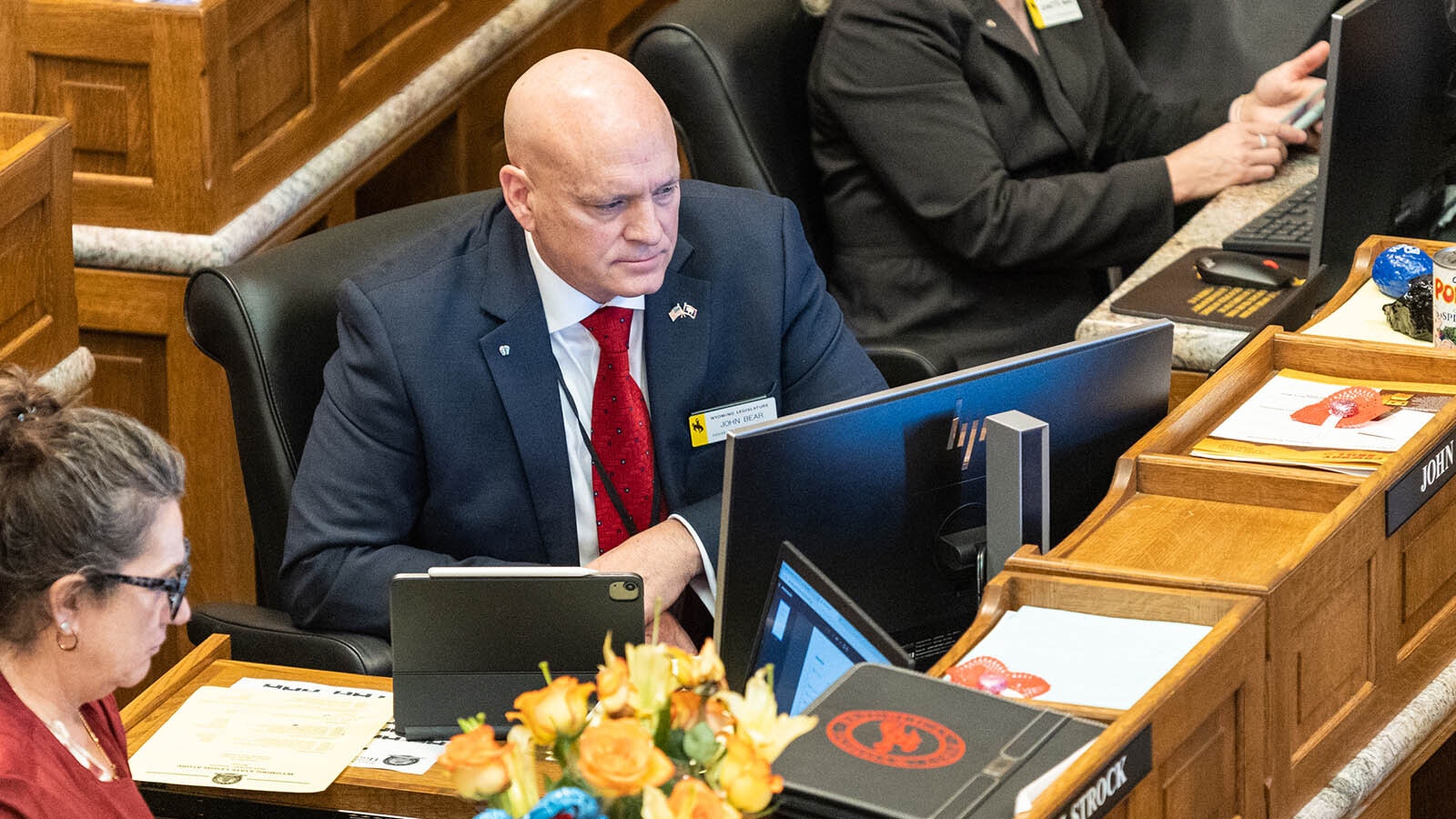There are few in 2024 who would argue in favor of child or slave labor, but state Rep. John Bear, R-Gillette, wants Wyoming to take a stronger stance against the practice.
Bear is proposing a bill for the upcoming legislative session that would ban the state of Wyoming from buying any products produced with child or slave labor.
“It’s about really promoting American civil rights in purchases,” Bear said. “It’s about taking a stand for human rights and being real about it.”
There are an estimated 3 million children around the world who are in forced-labor situations, according to human rights group Anti-Slavery International, and 49.6 million people overall engaged in forced slavery, according to human rights group Walk Free.
Although child labor and slavery are illegal in the United States, there are documented cases of common American household items being connected to forced labor.
What Bear’s bill —State Funds-Prohibition For Slave Or Child Labor — does is require any business that Wyoming state government buys a product from to certify that the creation of those products hasn’t been assisted by forced labor or from the labor of children that would violate U.S. law in any way.
“We need to be real about what kind of support we’re going to give for human rights,” Bear said.
Problematic Products
Bear points to electric vehicle batteries and solar panels as two products with the potential to have ties to slavery in other countries.
The mining of cobalt is critical for producing lithium-ion batteries for electric vehicles, cellphones and laptops, an activity that predominantly takes place in the Democratic Republic of Congo. Child labor has been frequently documented in connection with this mining.
Although there often isn’t a direct pipeline between child labor and major brands that use cobalt, a 2016 Amnesty International report found that traders regularly buy cobalt in the Congo from areas “rife” with child labor.
The Amnesty investigation found that a Chinese company and its subsidiary process the cobalt before selling it to three battery component manufacturers in China and South Korea. In turn, these companies sell to battery makers who claim to supply technology and car companies, including Apple, Microsoft, Samsung, Sony, Daimler and Volkswagen.
And although it’s not forced labor, adult freelance workers in the Congo regularly perform extremely dangerous labor for the equivalent of just a few dollars a day. Bear said situations like these are part of the reason why American manufacturing has declined in recent decades, because of the much higher wages required in the U.S.
To make a rebound in this sector, he believes Wyoming needs to take a stand against shoddy practices worldwide.
“These are the very things we need to stand for,” Bear said.
The state of Wyoming routinely buys laptops and cellphones for its various agencies. When it comes to electric vehicles, the Wyoming Department of Transportation doesn’t own any, but could not confirm for the state’s other agencies. However, EVs could become more prevalent in the state’s vehicle fleet in the future.
Although it wasn’t a state-level purchase, Bear also mentioned the joint purchase made between Teton County and the town of Jackson for eight electric buses to add to its existing 31-bus fleet. As of last fall, none of the buses were working.
Solar Panels Too
Similar ethical concerns exist for the production of solar panel batteries, he said.
A 2022 report from the Clean Energy Council, a group representing renewable energy companies and solar installers, called for more “certificate of origin” regulations to counter concerns about slave labor in mineral extraction and manufacturing in China, Africa and South America.
According to Reuters, more than 1,000 shipments of solar energy components worth hundreds of millions of dollars piled up at U.S. ports in 2021 under a new law banning imports from China's Xinjiang region over concerns about slave labor.
The United Nations has reported that some of the world’s largest solar panel manufacturers likely use input extracted or processed from the use of ethnic Ughyurs, who are placed into so-called “re-education camps” by the Chinese Communist Party and forced to work.
Although he doesn’t consider himself an environmentalist, Bear said criticisms could also be levied about the environmental effects of mining cobalt.
His bill, House Bill 99, would preclude labor facilitated as a result of The Juvenile Justice Act or Children in Need of Supervision Act, or from any incarceree.
Pushback?
Although it’s unlikely anyone in the Wyoming Legislature would oppose the purpose of Bear’s bill, he said there might be some pushback from those who worry that it could too tightly hamstring the products and services the state can buy.
A similar criticism was issued for a few different bills brought during the 2023 legislative session that aimed to block the state from buying products from companies with environmental, social and corporate governance (ESG) policies. Many of those opposing these measures said the bans would be too restrictive on the state government’s purchasing power.
In response to criticisms like these, Bear said the state should take a stance.
“Americans have some of the most purchasing power,” Bear said. “If we want to make changes with our purchasing power, Americans can fill that need.”
Leo Wolfson can be reached at leo@cowboystatedaily.com.





